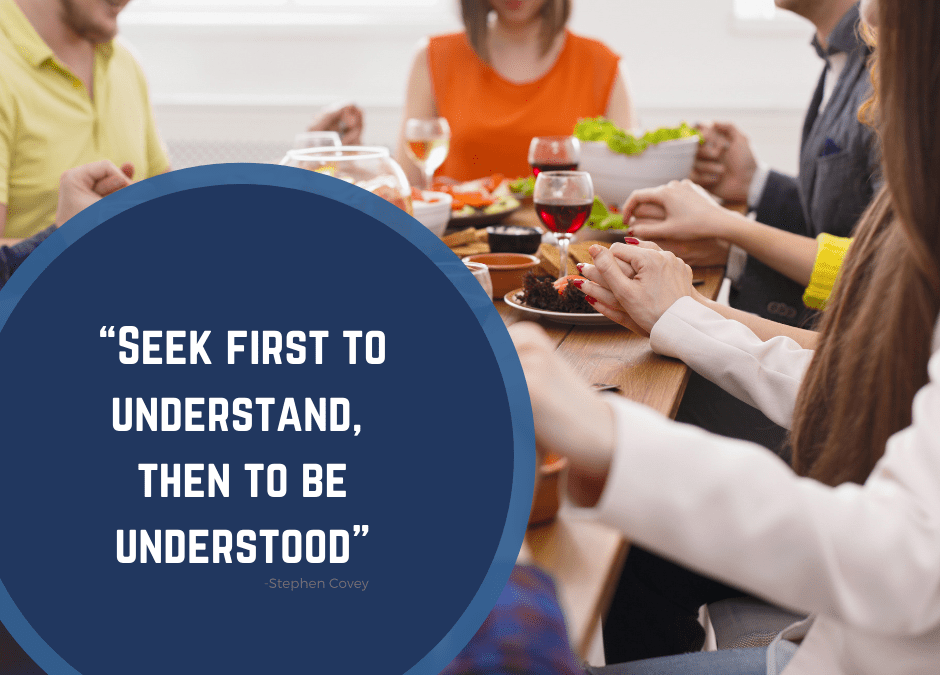Our inability to have tough conversations has undermined our collective ability to lead. Perhaps technology is to blame, or hubris, or ignorance, or the devaluing of the liberal arts. Regardless, the point remains: we have lost the ability to engage in difficult dialogue.
The consequences of this lost ability are significant, and obvious. Our politics have devolved into name calling. People are leaving organized religion in droves, arguably because the tough questions keep getting swept under the rug. And our educational system is failing our kids because we have not truly listened to them, or to our teachers. Real listening would lead to challenging conversations, ones that we need to have but continue to avoid.
Specific to organizational life, disengaged employees have become the norm because they are not meaningfully invited into dialogue about issues of consequence, nor are they being given useful feedback that challenges them to grow and develop. Why? Because these are often tough conversations, and people are avoiding such conversations because we have forgotten how to talk about complex and sensitive issues.
My Grandfather and I don’t see eye to eye on politics. Yet, whenever we are together, we end up discussing politics. Yes, that’s right, the thing that people are apparently not supposed to talk about at the dinner table. I take issue with people identifying certain topics that we are not supposed to discuss. How else are we going to learn? Or be challenged? Or evolve our thinking and understanding? Or develop the ability to engage in difficult dialogue?
So my Grandfather and I talk. He sends me articles, leaves me books, and shares his thoughts. Yet he is also quiet, respectfully listening to my points with curiosity. At least that is what I tell myself he is doing.
One of Stephen Covey’s classic habits, “Seek first to understand, then to be understood” is the key to how my Grandfather and I have been able to chat about politics without devolving into name calling or shouting matches. Even though my Grandfather and I see politics differently, we both approach our conversations with a desire to understand.
I respect that my Grandfather is politically active, is an avid reader, and embodies civic responsibility. I want to understand why he thinks about politics the way he does. So I ask questions, and I listen. Not to interrupt, not to insert my points, not to counter, but to listen to understand. To understand his perspectives, how his lived experiences have shaped his world view, and what and who influence his thinking. Because we both approach our conversations from this perspective of understanding, the dialogue continues.
Instead of avoiding politics and religion at the dinner table, we need to reengage in these sorts of discussions. Not to score points, to win, or to prove someone wrong. But to listen to understand. And if we can relearn how to engage in tough discussions around the dinner table, then maybe we can begin having tough discussions in the workplace and beyond.
(Originally published by the Reading Eagle Business Weekly on 3-25-19)
